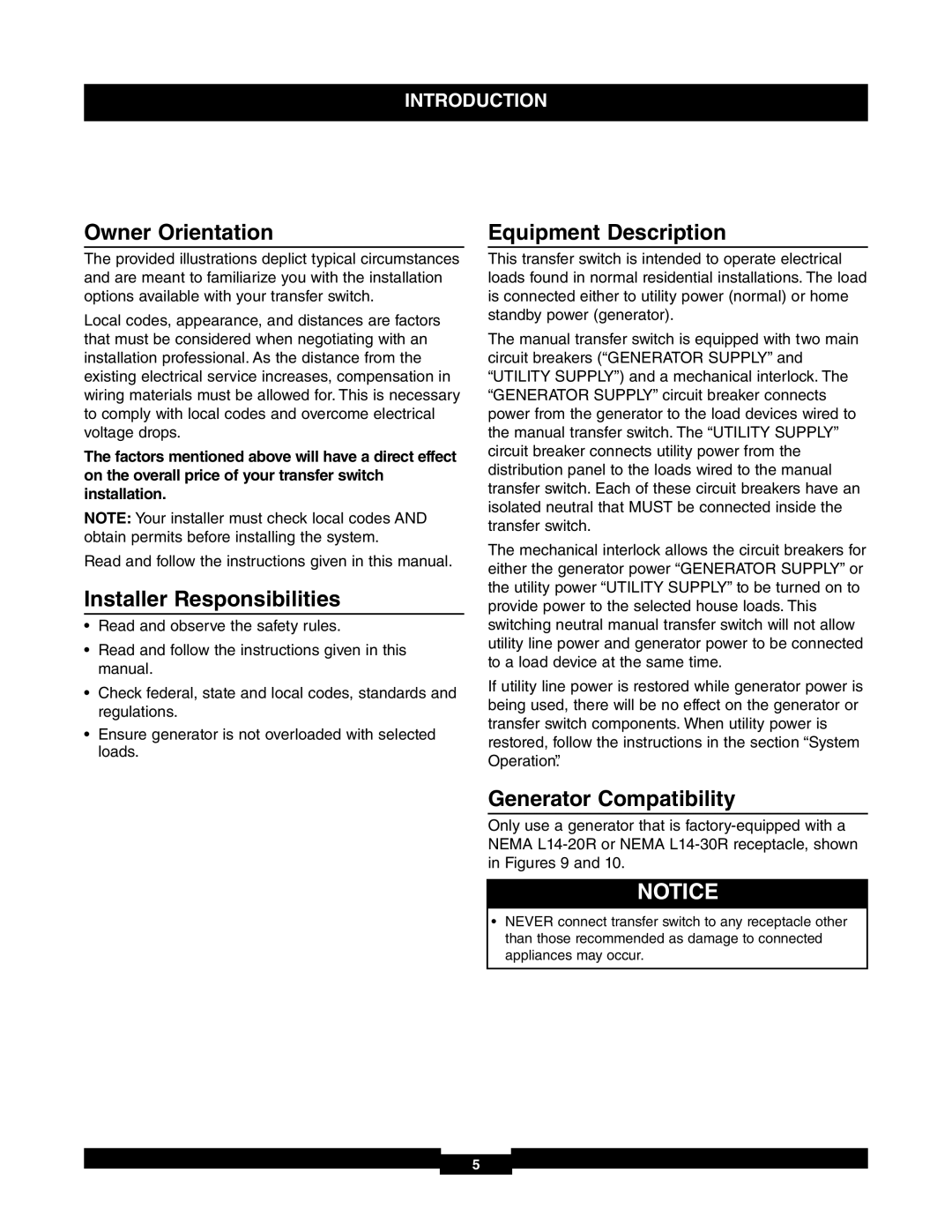
INTRODUCTION
Owner Orientation
The provided illustrations deplict typical circumstances and are meant to familiarize you with the installation options available with your transfer switch.
Local codes, appearance, and distances are factors that must be considered when negotiating with an installation professional. As the distance from the existing electrical service increases, compensation in wiring materials must be allowed for. This is necessary to comply with local codes and overcome electrical voltage drops.
The factors mentioned above will have a direct effect on the overall price of your transfer switch installation.
NOTE: Your installer must check local codes AND obtain permits before installing the system.
Read and follow the instructions given in this manual.
Installer Responsibilities
•Read and observe the safety rules.
•Read and follow the instructions given in this manual.
•Check federal, state and local codes, standards and regulations.
•Ensure generator is not overloaded with selected loads.
Equipment Description
This transfer switch is intended to operate electrical loads found in normal residential installations. The load is connected either to utility power (normal) or home standby power (generator).
The manual transfer switch is equipped with two main circuit breakers (“GENERATOR SUPPLY” and “UTILITY SUPPLY”) and a mechanical interlock. The “GENERATOR SUPPLY” circuit breaker connects power from the generator to the load devices wired to the manual transfer switch. The “UTILITY SUPPLY” circuit breaker connects utility power from the distribution panel to the loads wired to the manual transfer switch. Each of these circuit breakers have an isolated neutral that MUST be connected inside the transfer switch.
The mechanical interlock allows the circuit breakers for either the generator power “GENERATOR SUPPLY” or the utility power “UTILITY SUPPLY” to be turned on to provide power to the selected house loads. This switching neutral manual transfer switch will not allow utility line power and generator power to be connected to a load device at the same time.
If utility line power is restored while generator power is being used, there will be no effect on the generator or transfer switch components. When utility power is restored, follow the instructions in the section “System Operation”.
Generator Compatibility
Only use a generator that is
NOTICE
•NEVER connect transfer switch to any receptacle other than those recommended as damage to connected appliances may occur.
5
